SNVSA40B October 2014 – June 2024 TPS61169
PRODUCTION DATA
- 1
- 1 Features
- 2 Applications
- 3 Description
- 4 Pin Configuration and Functions
- 5 Specifications
- 6 Detailed Description
- 7 Application and Implementation
- 8 Device and Documentation Support
- 9 Revision History
- 10Mechanical, Packaging, and Orderable Information
Package Options
Mechanical Data (Package|Pins)
- DCK|5
Thermal pad, mechanical data (Package|Pins)
Orderable Information
7.3 Application Curves
Typical application condition is as in Figure 7-1, VIN = 3.6V, RSET = 10.2Ω, L = 4.7µH,
COUT = 1µF, 10 LEDs in series (unless otherwise
specified).
Typical application condition is as in Figure 7-1, VIN = 3.6V, RSET = 10.2Ω, L = 4.7µH,
COUT = 1µF, 10 LEDs in series (unless otherwise
specified).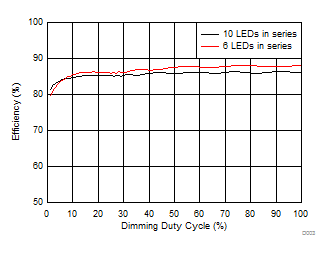
Figure 7-2 Efficiency vs Dimming Duty Cycle. Typical application condition is as in Figure 7-1, VIN = 3.6V, RSET = 10.2Ω, L = 4.7µH,
COUT = 1µF, 10 LEDs in series (unless otherwise
specified).

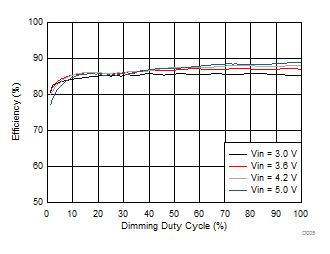
| 8 LEDs in series | ||
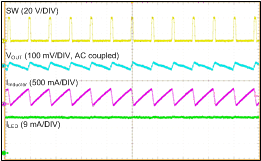
| Time = 1µs/DIV | ||
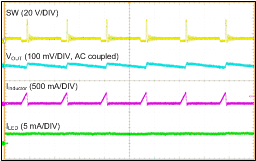
| Time = 2µs/DIV | ||
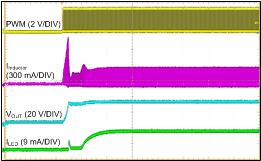
| Time = 2ms/DIV | ||
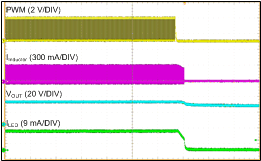
| Time = 2ms/DIV | ||
| Duty = 50% | ||
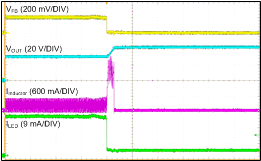
| Time = 50µs/DIV | ||||
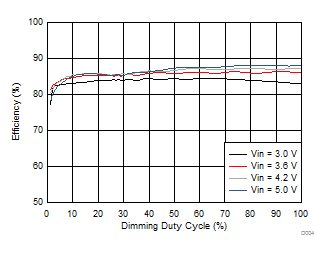
| 10 LEDs in series | ||
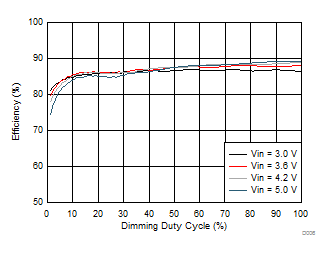
| 6 LEDs in series | ||
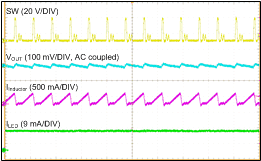
| Time = 1µs/DIV | ||
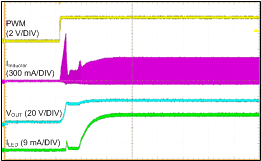
| Time = 2ms/DIV | ||
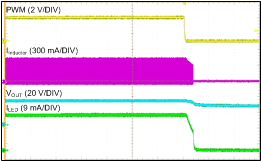
| Time = 2ms/DIV | ||
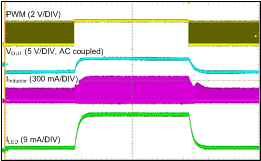
| Time = 5ms/DIV | ||
| Duty = 1%-100%-1% | ||